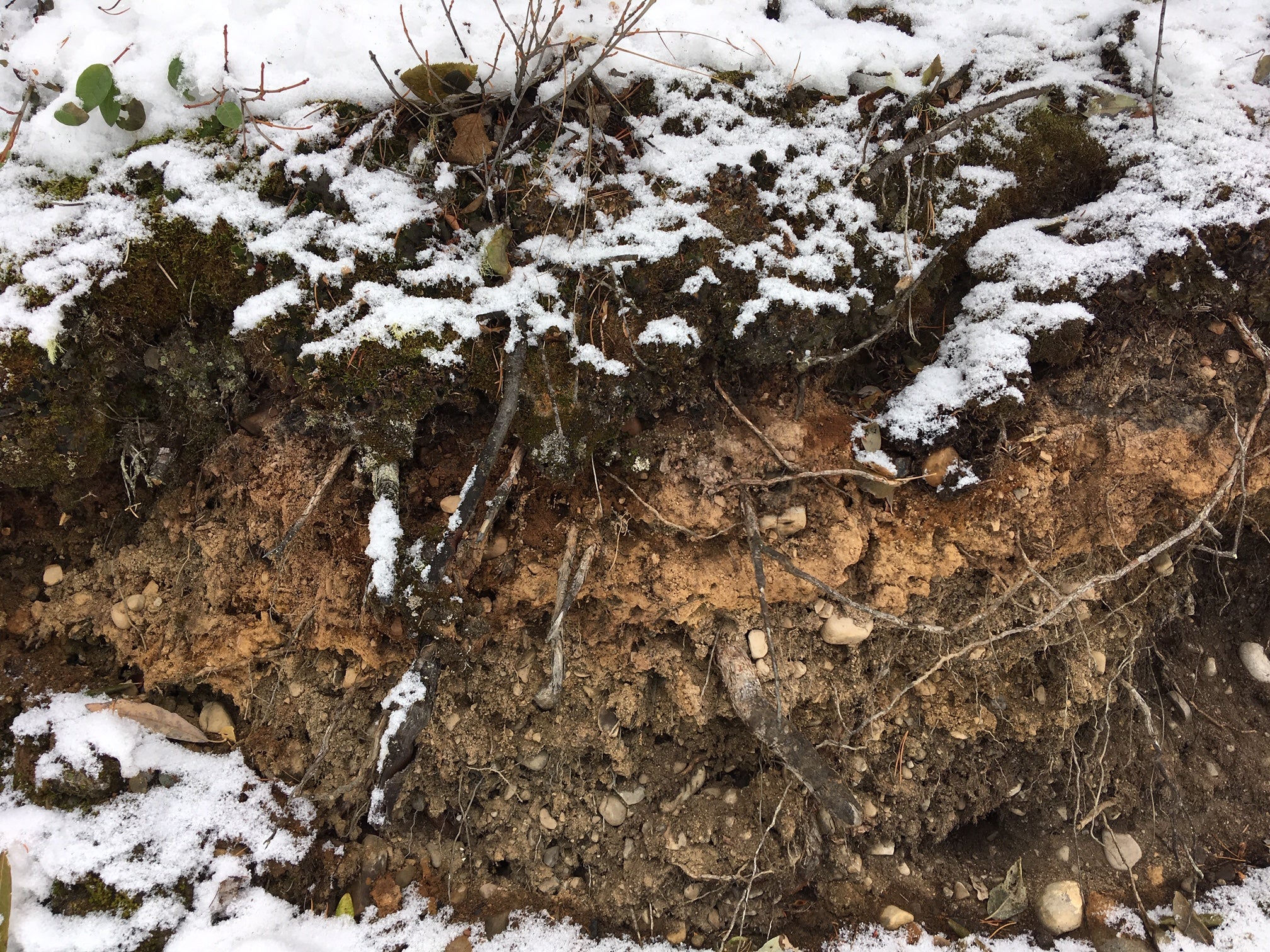Authored by: Water Institute member, Fereidoun Rezanezhad, Assistant Professor in the Department of Earth and Environmental Sciences, University of Waterloo and Principal Investigator in the Global Water Futures project, Winter Soil Processes in Transition.
Soil is often out of sight, out of mind for many of us, but it is critically important for our ability to grow food and protect water supplies. Despite its significance, we know very little about how the changing winter climate could be affecting one of our most important resources — the health of our soils. The trend towards warmer winters is leading to a greater frequency of freeze-thaw events that deplete the insulating snowpack, creating colder soils. This alters not only the physical but also the chemical and biological properties of soils — a piece of the biogeochemical puzzle that until now has largely been ignored. These factors subsequently change the movement of water, carbon and nutrients in soils during the winter. The Ecohydrology Research Group at the University of Waterloo is conducting research at rare to discover how soils are changing and what that means for the health of agricultural soils and water quality.

Photo taken by Tatjana Milojevic in October 2018 near Banff, Alberta.
Many
scientists
have
traditionally
thought
that
frozen
soils
are
dormant,
but
our
studies
show
that
soils
remain
biogeochemically
active
during
winter
months,
undergoing
different
processes
than
in
other
seasons.
We
are
finding
that
this
can
affect
the
water
quality
of
streams
during
spring
snowmelt.
Among
other
implications,
increased
nutrient
loading
from
soil
to
water
bodies
can
cause
algal
blooms
—
a
rapid
growth
of
algae
that
can
deplete
the
water’s
oxygen
and
produce
harmful
toxins.
That
is
why
our
researchers
are
working
to
understand
how
different
potential
climatic
scenarios
could
alter
the
movement
of
carbon
and
nutrients
in
soils
and
water.
The
goal
is
to
predict
the
impact
of
changing
belowground
temperatures
and
snow
cover
on
biogeochemical
processes
in
soils
during
the
winter.

Field in late winter. Photo by P. Kelly.
Implications for Soil Health
Identifying biogeochemical drivers such as energy and nutrient delivery on winter microbial community composition, functions and dynamics is critical to establishing a mechanistic understanding of winter biogeochemical cycles. This research could also affect the health of soils and their ability to support plant growth. The interdisciplinary work on winter soil processes, led by the Ecohydrology Research team, examines microbial activities during winter conditions, to estimate repeated freeze-thaw cycles’ effects on microbial resilience and the biological carbon and nutrient release.
Led by Professor Fereidoun Rezanezhad and funded by Global Water Futures, the Winter Soil Processes project aims to develop novel experimental systems that simulate realistic soil conditions during freeze-thaw cycles, while improving the fundamental understanding of biogeochemical processes under freeze-thaw events during the winter-to-spring transition.
Learn more about Winter Soil Processes and the Global Water Futures project at the University of Waterloo